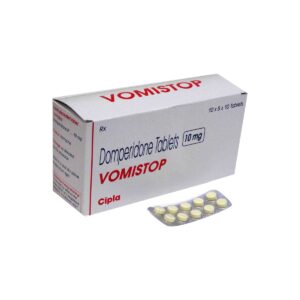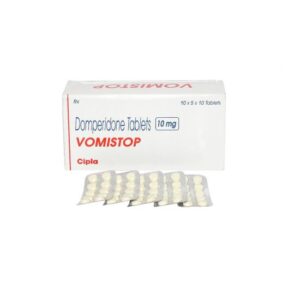Mesalamine is used to treat ulcerative colitis (a condition in which part or all of the lining of the colon [large intestine] is swollen or worn away). Mesalamine delayed-release tablets and controlled-release capsules may be used to treat ulcerative colitis that affects any part of the colon. Mesalamine suppositories and enemas should only be used to treat inflammation of the lower part of the colon. Mesalamine is in a class of medications called anti-inflammatory agents. It works by stopping the body from producing a certain substance that may cause pain or inflammation.
Usage directions
Mesalamine comes as a delayed-release tablet and a controlled-release capsule to take by mouth and as a suppository and an enema to use in the rectum. The delayed-release tablet is usually taken three times a day, and the controlled-release capsule is usually taken four times a day. The suppository is usually used one to three times a day, and the enema is usually used once a day at bedtime. Follow the directions on your prescription label carefully, and ask your doctor or pharmacist to explain any part you do not understand. Take or use mesalamine exactly as directed. Do not take or use more or less of it or take or use it more often than prescribed by your doctor.
Swallow the tablets whole; do not split, chew, or crush them. Be careful not to break the protective coating on the tablets.
If you are unable to swallow the capsules, you may mix the contents of the capsules with water. Open a capsule and sprinkle all of the beads it contains in a small glass of water. Stir the beads into the water and drink the mixture right away. Do not store mixtures of beads and water for later use.
The enema and suppositories are for rectal use only.
You should begin to feel better during the first few days or weeks of your treatment with mesalamine. Continue to take or use mesalamine until you finish your prescription, even if you feel better at the beginning of your treatment. Do not stop taking or using mesalamine without talking to your doctor.
Mesalamine suppositories and enemas may stain clothing, flooring, fabric and other surfaces. Take precautions to prevent staining when you use these medications.
If you are to use the enema, follow these steps:
- Try to have a bowel movement. The medication will work best if your bowels are empty.
- Use scissors to cut the seal of the protective foil pouch that holds seven bottles of medication. Be careful not to squeeze or cut the bottles. Remove one bottle from the pouch.
- Look at the liquid inside the bottle. It should be off-white or tan colored. The liquid may darken slightly if the bottles are left out of the foil pouch for a time. You may use liquid that has darkened a little bit, but do not use liquid that is dark brown.
- Shake the bottle well to make sure the medication is mixed.
- Remove the protective cover from the applicator tip. Be careful to hold the bottle by the neck so that the medication will not leak out of the bottle.
- Lie on your left side with your lower (left) leg straight and your right leg bent toward your chest for balance. You can also kneel on a bed, resting your upper chest and one arm on the bed.
- Gently insert the applicator tip into your rectum, pointing it slightly toward your navel (belly button). If this causes pain or irritation, try putting a small amount of personal lubricating jelly or petroleum jelly on the tip of the applicator before you insert it.
- Hold the bottle firmly and tilt it slightly so that the nozzle is aimed toward your back. Squeeze the bottle slowly and steadily to release the medicine.
- Withdraw the applicator. Remain in the same position for at least 30 minutes to allow the medicine to spread through your intestine. Try to keep the medicine inside of your body for about 8 hours (while you sleep).
- Throw away the bottle in a trash can that is out of the reach of children and pets.Each bottle contains only one dose and should not be reused.
If you are to use the suppository, follow these steps:
- Try to have a bowel movement just before using the suppository. The medication will work best if your bowels are empty.
- Separate one suppository from the strip of suppositories. Hold the suppository upright and use your fingers to peel off the plastic wrapper. Try to handle the suppository as little as possible to avoid melting it with the heat of your hands.
- You may put a small amount of personal lubricant jelly or Vaseline on the tip of the suppository so that it will be easier to insert.
- Lie down on your left side and raise your right knee to your chest. (If you are left-handed, lie on your right side and raise your left knee.)
- Using your finger, insert the suppository into the rectum, pointed end first. Use gentle pressure to insert the suppository completely. Try to keep it in place for 1 to 3 hours or longer if possible.
- Wash your hands thoroughly before you resume your normal activities.
If you will be using mesalamine enemas or suppositories, ask your pharmacist or doctor for a copy of the manufacturer’s information for the patient that comes with the medication.
Other uses
This medication may be prescribed for other uses. Ask your doctor or pharmacist for more information.
Special precautions
Before taking or using mesalamine,
- tell your doctor and pharmacist if you are allergic to mesalamine, balsalazide (Colazal); olsalazine (Dipentum); salicylate pain relievers such as aspirin, choline magnesium trisalicylate, choline salicylate (Arthropan), diflunisal (Dolobid), magnesium salicylate (Doan’s, others), and salsalate; sulfasalazine (Azulfidine) or any other medications. If you will be using mesalamine enemas, tell your doctor if you are allergic to sulfites (substances used as food preservatives and found naturally in some foods) or any foods, dyes, or preservatives. Also tell your doctor if you are allergic to any of the ingredients in the type of mesalamine you will be using. Ask your pharmacist for a list of the ingredients.
- tell your doctor and pharmacist what prescription and nonprescription medications, vitamins, nutritional supplements, and herbal products you are taking or plan to take. Be sure to mention any of the following: aspirin or other nonsteroidal anti-inflammatory drugs (NSAIDs) such as ibuprofen (Advil, Motrin) and naproxen (Aleve, Naprosyn); digoxin (Lanoxicaps, Lanoxin); or other medications for ulcerative colitis such as balsalazide (Colazal), olsalazine (Dipentum), or sulfasalazine (Azulfidine). Your doctor may need to change the doses of your medications or monitor you more carefully for side effects.
- tell your doctor if you have or have ever had pancreatitis (swelling of the pancreas), pericarditis (swelling of the sac around the heart), or liver or kidney disease. If you will be taking the delayed-release tablets, tell your doctor if you have or have ever had pyloric stenosis (condition in which the stomach does not empty normally). If you will be using the enemas, tell your doctor if you have asthma or allergies.
- tell your doctor if you are pregnant, plan to become pregnant, or are breast-feeding. If you become pregnant while taking or using mesalamine, call your doctor.
- you should know that mesalamine may cause a serious reaction. Many of the symptoms of this reaction are similar to the symptoms of ulcerative colitis, so it may be difficult to tell if you are experiencing a reaction to the medication or a flare (episode of symptoms) of your disease. Call your doctor if you experience some or all of the following symptoms: stomach pain or cramping; bloody diarrhea; fever; headache; weakness; rash; or red, irritated eyes.
Food limitations and special diet when taking Mesalamine
Unless your doctor tells you otherwise, continue your normal diet.
Missed dose
Take or use the missed dose as soon as you remember it. However, if it is almost time for the next dose, skip the missed dose and continue your regular dosing schedule. Do not take or use a double dose to make up for a missed one.
Possible side effects
Mesalamine may cause side effects. Tell your doctor if any of these symptoms are severe or do not go away:
- headache
- muscle or joint pain, aching, tightness or stiffness
- back pain
- nausea
- vomiting
- heartburn
- burping
- constipation
- gas
- dry mouth
- sore throat
- cough
- flu-like symptoms
- stuffy head or runny nose
- ear pain
- anxiety
- sweating
- hemorrhoids
- pain in the rectum
- difficulty falling asleep or staying asleep
- acne
- slight hair loss
Some side effects can be serious. If you experience any of the following symptoms, call your doctor immediately:
- chest pain
- shortness of breath
- black or tarry stools
- bloody vomit
- vomiting material that looks like coffee grounds
- urinating more or less than usual
- blood in urine
- confusion
- swelling of any part of the body
Mesalamine may cause other side effects. Call your doctor if you have any unusual problems while you are taking or using this medication.
Storage and disposal of Mesalamine
Keep this medication in the container it came in, tightly closed, and out of reach of children. Store it at room temperature and away from excess heat, light, and moisture (not in the bathroom). You may store mesalamine suppositories in the refrigerator but do not freeze them. Once you open the foil package of mesalamine enemas use all the bottles promptly, as directed by your doctor. Throw away any medication that is outdated or no longer needed. Talk to your pharmacist about the proper disposal of your medication.
Emergency/overdose
In case of overdose, call your local poison control center. If the victim has collapsed or is not breathing, call local emergency services.
Other important information
If you are taking mesalamine delayed-release tablets, you may notice the tablet shell or part of the tablet shell in your stool. Tell your doctor if this happens several times.
Keep all appointments with your doctor and the laboratory. Your doctor may order certain lab tests before and during your treatment.
Do not let anyone else take or use your medicine. Ask your pharmacist any questions you have about refilling your prescription.
It is important for you to keep a written list of all of the prescription and nonprescription (over-the-counter) medicines you are taking, as well as any products such as vitamins, minerals, or other dietary supplements. You should bring this list with you each time you visit a doctor or if you are admitted to a hospital. It is also important information to carry with you in case of emergencies.
Disclaimer
We provide only general information about Asacol which does not cover all possible drug integrations, directions or precautions. Information at our website cannot be used for self-treatment and self-diagnosis. Any specific instructions for a particular patient should be agreed with his health care adviser or doctor in charge of the case. We disclaim reliability of this information and mistakes it could contain. We are not responsible for any direct, indirect, special or other indirect damage as a result of any use of the information on this site and also for consequences of self-treatment.




